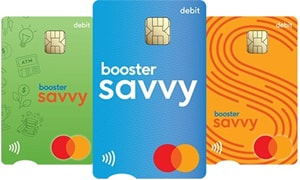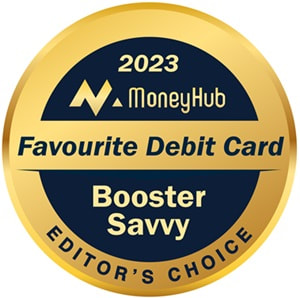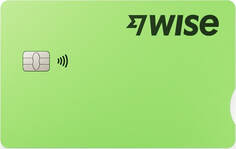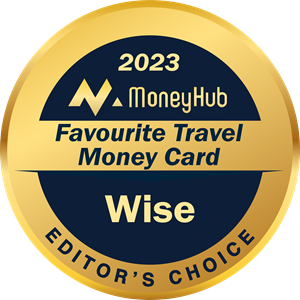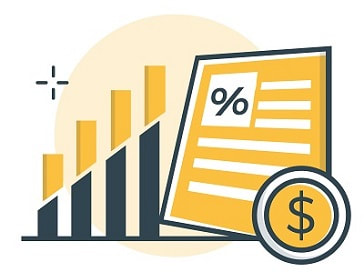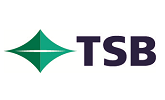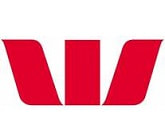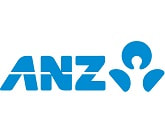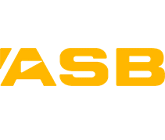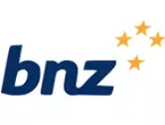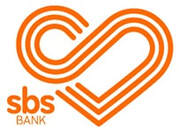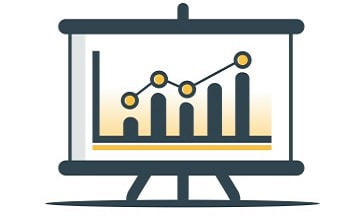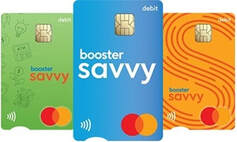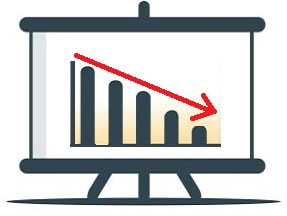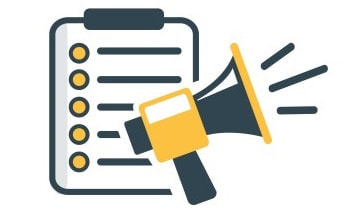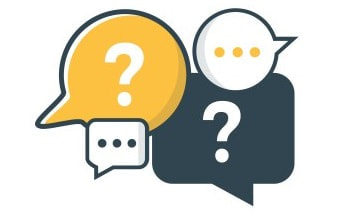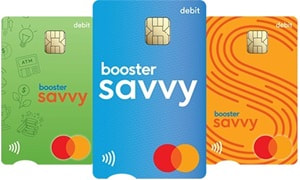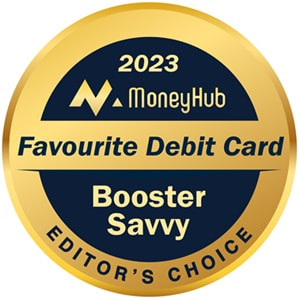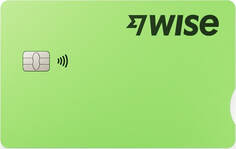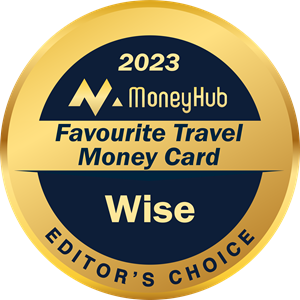Best Bank Accounts - July 2024
Our must-read guide compares the fee-free, low overdraft and interest-earning bank accounts offered by ANZ, ASB, BNZ, Kiwibank, Westpac, Heartland, TSB, SBS and more. We outline the best bank accounts currently available.
Updated 20 July 2024
Know this first: Per the New Zealand Bankers Association, switching banks is safe, easy and fast. Specifically:
Summary of Best Bank Accounts
Our guide covers:
Looking for the best debt card? Our dedicated debit card comparison has you covered.This process also links recurring payments, such as direct debits and automatic payments, to your new bank account number. Your new bank can do all that for you, through a single form.
- Your new bank can take care of everything in five working days. This process also links recurring payments, such as direct debits and automatic payments, to your new bank account number. Your new bank can do all that for you, through a single form. It’s the fastest switching in the world.
- If you're unhappy with your current account, this guide outlines the best bank accounts currently available.
Summary of Best Bank Accounts
- The general state of affairs for personal banking in New Zealand is simple:
- Most banks offer a fee-free account
- You won't earn any significant interest on a credit balance
- Overdraft interest rates vary from low to high; and
- The perks between banks are generally the same
- A fee-free bank account means there is no monthly service charge. Additionally, all accounts include New Zealand ATM transaction fees, internet banking and electronic statements. If you're currently paying a monthly fee for your bank account, it is time to look at other options.
- If you want 'traditional' banking services, such as paper statements and staff assistance to pay in cheques, then most banks will charge fees. In reality, we believe most New Zealanders can have fee-free banking unless unusual circumstances arise.
- The biggest banking expense outside of a mortgage or credit card interest is the cost of an overdraft. Interest rates can be a drain on savings and the biggest 'non-fee' expense of a bank account. We suggest comparing banks to get the best deal any time you're thinking of changing banks.
- When you move banks, you'll need to make sure your direct debits, automatic payments, and of course your salary payment details change. It's not as complicated as it sounds, and banks are used to dealing with it.
Our guide covers:
- Best Fee-Free Bank Accounts
- Best Bank Accounts that Pay Interest on Savings
- Best bank Accounts for Overdrafts
- Frequently Asked Questions
Looking for the best debt card? Our dedicated debit card comparison has you covered.This process also links recurring payments, such as direct debits and automatic payments, to your new bank account number. Your new bank can do all that for you, through a single form.
Our Best Bank Account Picks:
Disclaimer: Wise is a non-bank payment provider.
- Heartland Bank YouChoose - Best fee-free bank account that pays interest on savings
- Wise Bank Account - Best bank account for international currency transactions, exchange rates, free debit card and innovative app features
- Heartland Bank YouChoose - Best bank account for overdrafts
Disclaimer: Wise is a non-bank payment provider.
- It is not a bank, as regulated by law. This means a Wise account is, by definition, an "electronic money account" and not a bank account. It does, however, function in a similar way.
- Because of its innovation around debit cards, apps, exchange rates and travel money, we are including Wise in this guide.
- However, we remind users that a Wise account doesn't allow direct debits and overdrafts, nor does it pay any interest on deposits.
MoneyHub Founder Christopher Walsh shares his views on the best bank accounts available right now:
|
"The bank accounts offered by the big banks are not too exciting or innovative, but they are reliable and functional. They also offer debit cards you can use anywhere cards are accepted. While I'm not too fond of the fact that most big banks charge annual debit card fees, that is how it is. Their banking apps, customer support, security and reliability are generally indistinguishable.
If you're looking for an alternative bank account, there is good news and options, and my family and I have taken advantage of them personally:
Whatever you decide to do, if you are looking for a new bank account and/or debit card, I would also consider a budgeting app. Most integrate securely into your bank account to track where you spend and make the best decisions". |
MoneyHub Founder Christopher Walsh
|
Video highlights of our guide: The video below explains the key details outlined in this guide, including standard 'big bank' accounts, innovative alternatives, must-know tips and leading products:
Our Top-Rated Account Options - Savvy and WiseBest Account for Interest Rates, Wealth Creation and Flexibility:
What sets Savvy apart?
Savvy arguably redefines how we think about money management, merging the convenience of a debit card with the benefits of an investment fund, all while offering impressive returns. It's a forward-thinking solution for those who want their money to work harder for them without sacrificing accessibility or ease of use. More details: Our Savvy Review explains the product in detail, as does the Savvy website. |
|
Best Account for Spending and Sending Money Overseas:
Wise is the first 'electronic money account' to arrive in New Zealand. You won't be able to use it for direct debits or overdrafts, and it's doesn't pay interest on deposits either. It also doesn't offer phone banking. Instead, we see it as a "top up and use it to spend" card. In doing so, we argue Wise makes a useful 'secondary card' for specific needs such as spending securely in foreign currencies. We like Wise and its debit card because it lets you:
More details: Our Wise Debit Card Review explains the product in detail, as does the Wise website. |
Four tips for finding your best bank account
Every bank offers current accounts, but they may not be right for you. Use the tips below to find your best option:
Every bank offers current accounts, but they may not be right for you. Use the tips below to find your best option:
- If you're often in overdraft, find the bank accounts with the lowest overdraft charges - the interest rates vary between the banks.
- Interest-earning accounts do exist - If you have regular levels of savings but want access to your money, a bank account that pays interest is a good idea. Very few banks offer 'good' interest rates, but there are exceptions.
- Identify the monthly account fees right away - generally, free is best, with most free fee accounts offering the same level of benefits.
- Know your banking needs - if you prefer to know you work or live close to a branch, factor that into your consideration.
Best Fee-Free Bank Accounts
Almost every bank in New Zealand offers a fee-free bank account option. You'll still pay overdraft interest and fees, as well as non-standard fees, unless otherwise stated, the accounts shortlisted below offer:
- No monthly account fee
- Free, unlimited transactions with your debit or EFTPOS card within New Zealand
- Free setup and processing of automatic payments and Direct debits and credits
- Free phone banking and banking app
Heartland Bank YouChoose (our 'Best Fee-Free Bank Account' winner)
- Benefits: No monthly account fees, unlimited withdrawals and deposits, unlimited use of your EFTPOS card. Like all other banks, YouChoose account does have fees for overseas transactions, replacement cards and recovery costs for unpaid debt.
- Account balance interest? Yes - 0.50% p.a. on credit balances, paid monthly.
- Overdraft available? Yes - 10% p.a. charged monthly.
- Can I access my account with an app? Yes - Heartland Bank's app is downloadable for iOS (rated 4+/5) or Android (rated 4.2/5).
- Branches? Limited - see this list for current locations
- Know more or sign up: Visit Heartland YouChoose for more information
TSB Personal bank account
- Benefits: No monthly account fees, unlimited withdrawals and deposits, unlimited use of your EFTPOS or Debit card. Unlike other bank offers, staff-assisted transactions (deposits, withdrawals etc) are also free of charge.
- Account balance interest? Yes - on balances over $10,000
- Overdraft available? Yes - interest rates vary, see our overdraft guide.
- Can I access my account with an app? Yes - TSB's app is downloadable for iOS (rated 3.4/5) or Android (rated 3.5/5).
- Branches? Limited - see this list for current locations
- Know more or sign up: Visit TSB Connect Plus Account for more information
Kiwibank Free Up bank account
- Benefits: No monthly account fees, unlimited withdrawals and deposits, unlimited use of your EFTPOS or Debit card.
- Account balance interest? None.
- Overdraft available? Yes - interest rates vary, see our overdraft guide.
- Can I access my account with an app? Yes - Kiwibank's app is downloadable for iOS (rated 3.8/5) or Android (rated 4.3/5).
- Branches? Limited - see this list for current locations
- Know more or sign up: Visit Kiwibank Free Up for more information
Westpac Everyday bank account
- Benefits: No monthly account fees, unlimited withdrawals and deposits, unlimited transactions with your EFTPOS or Debit card.
- Account balance interest? None
- Overdraft available? Yes - interest rates vary, see our overdraft guide
- Can I access my account with an app? Yes - Westpac's app is downloadable for iOS (rated 4.6/5) or Android (rated 4/5).
- Branches? Around 150 - see this list for current locations
- Know more or sign up: Visit Westpac Everyday for more information
ANZ Go bank account
- Benefits: No monthly account fees, unlimited withdrawals and deposits, unlimited use of your EFTPOS or Debit card.
- Account balance interest? None
- Overdraft available? Yes - interest rates vary, see our overdraft guide
- Can I access my account with an app? Yes - ANZ goMoney app is downloadable for iOS (rated 3.1/5) or Android (rated 4.1/5).
- Branches? 100+ nationwide see this list for current locations
- Know more or sign up: Visit ANZ Go for more information
ASB Streamline bank account
- Benefits: No monthly account fees, unlimited withdrawals and deposits, unlimited use of your EFTPOS or Debit card.
- Account balance interest? None
- Overdraft available? Yes - interest rates vary, see our overdraft guide
- Can I access my account with an app? Yes - ASB's app is downloadable for iOS (rated 3.3/5) or Android (rated 4.1/5).
- Branches? 100+ nationwide see this list for current locations
- Know more or sign up: Visit ASB Streamline for more information
BNZ YouMoney bank account
- Benefits: No monthly account fees, unlimited withdrawals and deposits, unlimited use of your EFTPOS or Debit card.
- Account balance interest? None
- Overdraft available? Yes - interest rates vary, see our overdraft guide
- Can I access my account with an app? Yes - BNZ's app is downloadable for iOS (rated 4.8/5) or Android (rated 4.3/5).
- Branches? 100+ nationwide see this list for current locations
- Know more or sign up: Visit BNZ YouMoney for more information
SBS Bank Everyday bank account
- Benefits: No monthly account fees, unlimited withdrawals and deposits, unlimited use of your EFTPOS or Debit card.
- Account balance interest? None
- Overdraft available? Yes - interest rates vary, see our overdraft guide
- Can I access my account with an app? Yes - SBS's app is downloadable for iOS (rated 2.9/5) or Android (rated 2.2/5).
- Branches? 14 nationwide - see this list for current locations
- Know more or sign up: Visit SBS Bank Everyday account for more information
Best Bank Accounts that Pay Interest on Savings
Sadly, most major banks pay a paltry 0.05%, 0.10% or 0.25% on bank balances. Put simply, if you have an average of $1,000 in your current account, Westpac, BNZ and the likes will give a measly 50 cents or a dollar or two (before tax) each year. Challenger banks such as Heartland Bank offer more, in what we presume to be a drive to grow customer numbers.
Best Option - Heartland Bank's YouChoose Account - Earn above-market interest on any balance over $0:
Know more or sign up: Visit Heartland Bank's YouChoose Account for more information.
Alternative: Best Account for Interest Rates, Wealth Creation and Flexibility:
More details: Our Savvy Review explains the product in detail, as does the Savvy website.
- Savvy is a novel approach to managing your funds, blending everyday transaction ease with impressive returns. Unlike traditional bank accounts, which offer zero or low interest rates, Savvy isn't just a place to store your money; it's an investment in the Booster Savvy Fund, managed by Booster.
- Booster is not a bank. This means a Savvy account is not a bank account. It does, however, provide transactional account functionality, while paying 10X the interest rate Heartland's account does.
More details: Our Savvy Review explains the product in detail, as does the Savvy website.
Best Bank Accounts for Overdrafts
Overdrafts are debts, and in many cases cost more than credit card debt. If you find yourself frequently overdrawn, your priority is to find a low-interest overdraft. Most banks aren't competitive with their overdraft offers, but challenger banks such as Heartland offer market-beating accounts.
Best Option - Heartland Bank's YouChoose Account - Pay 10% p.a. on overdraft balances
5 Must-Know Tips When Choosing a New Bank
Understand the availability of branchesDespite banking moving largely online, generally, 90% of people visiting a bank do so to make a deposit, withdraw cash or pay in a cheque. If you do this regularly, you’ll need a branch that’s convenient. The challenger banks, such as Heartland, TSB, SBS and Co-Operative, offer far fewer branches than the main banks, which can be a nuisance if and when you need to visit. In saying this, main banks routinely close branches to cut costs, so branch availability is never guaranteed.
Research in America highlighted that bank customers were the happiest when they had access to both digital and in-branch services. While you may believe you can do everything online or over the phone, having a convenient branch for backup can make sense. |
Be aware of the overdraft feesIt has never been better for New Zealanders to get fee-free accounts – almost every bank offers them. But it’s the hidden costs such as overdraft fees and interest rates that make some ‘free’ bank accounts far less competitive than others. What matters is the interest rate and the fees. Nothing else.
|
Don’t sign up for insurance products before comparing the alternativesAll too often banks promote their insurance products without encouraging shopping around. As banks are resellers from other insurers, they are often more expensive. Our insurance guides compare almost every insurance product so you can see if the bank’s quote is competitive.
|
Understand ALL of the fees you’ll pay for non-standard useFrom our research:
|
Frequently Asked Questions
We've listed a number of popular questions to make the decision process easier. If you're unsure about anything, ask the bank before going any further or signing up.
Know This First: Banks possess varying credit ratings, which serve as indicators of the safety of your account. While the risk is low, for more information, refer to our comprehensive Bank Credit Ratings guide.
Know This First: Banks possess varying credit ratings, which serve as indicators of the safety of your account. While the risk is low, for more information, refer to our comprehensive Bank Credit Ratings guide.
Can I still switch banks if I'm overdrawn?
Yes. Being in overdraft with one bank doesn't prevent you from signing up to another bank. However, if you're shifting your salary payments and direct debits to a new bank account, it is a good idea to focus on repaying the overdraft to minimise interest costs.
Can I qualify for a 0% balance transfer credit card?
It depends on the bank offering the card - our guide to balance transfer credit cards explains what you need to know.
Can I spend on a credit card instead of withdrawing from my bank account?
Yes - many people do this daily, choosing to put expenses on a credit card and repay it at the end of the month. It's great to keep all of your expenses together, but it doesn't work if you have problems repaying the balance off in full. If you don't do this, credit card interest is incurred, and it can get expensive. Our guide to low-interest credit cards outlines some more affordable options.
Can I change the dates my bills get paid to help my money management?
It depends. For a mortgage or rent payments, talk to your bank, landlord or property manager. Credit card due dates are usually fixed. If you are having problems paying bills on time, our debt help guide has solutions.
Can I switch banks if I have bad credit?
Yes, but each bank has its own assessment criteria. Our guide to credit scores outlines more about the process.
I applied for one of these accounts and got rejected. What can I do?
Banks usually won't disclose their application decision reasons, so your options are either apply for an account with another bank or stay with your current bank.
How do I find my local branch?
The easiest way, beyond the bank's website, is to Google your bank's name and the area you live in. You'll get a Google map showing the branches around you as well as their opening hours.
How long does a cheque take to clear?
From the day it is paid in, usually 3-5 working days. Allow up to 5 to be safe.
What's the difference between a direct debit and automatic payment?
An automatic payment is a fixed recurring amount you set up to transfer out of your bank account every month or fortnight etc. A typical example would be a subscription, which is a fixed price, or rent to a landlord. A direct debit is payment taken out of your bank account because you authorised the recipient to do so. Direct debits are used when the amount varies each billing time. Examples include phone bills, power bills and internet/fibre bills.
When it comes to switching bank accounts and arranging new direct debits and automatic payments, per the New Zealand Bankers Association:
When it comes to switching bank accounts and arranging new direct debits and automatic payments, per the New Zealand Bankers Association:
- Your new bank can take care of everything in five working days. This process also links recurring payments, such as direct debits and automatic payments, to your new bank account number. Your new bank can do all that for you, through a single form. It’s the fastest switching in the world.
- If you're unhappy with your current account, this guide outlines the best bank accounts currently available.
How long does it take for an EFTPOS card or debit card to arrive?
Among most New Zealand banks, the time is usually within five business days from the date your bank account was approved. Our dedicated debit card comparison explains more.
Are internet and mobile banking safe?
Yes - but as with anything online, protecting your details from fraud is essential. To do this:
- Never share or send your online/mobile banking information.
- If you use an app on your phone, make sure you regularly update it so that you have the latest security features.
- Delete any unusual emails about 'password recovery' or 'fraud alerts' - these are likely to be scams. If in doubt, contact your bank via their official number.
Our Top-Rated Account Options - Savvy and WiseBest Account for Interest Rates, Wealth Creation and Flexibility:
What sets Savvy apart?
Savvy arguably redefines how we think about money management, merging the convenience of a debit card with the benefits of an investment fund, all while offering impressive returns. It's a forward-thinking solution for those who want their money to work harder for them without sacrificing accessibility or ease of use. More details: Our Savvy Review explains the product in detail, as does the Savvy website. |
|
Best Account for Spending and Sending Money Overseas:
Wise is the first 'electronic money account' to arrive in New Zealand. You won't be able to use it for direct debits or overdrafts, and it's doesn't pay interest on deposits either. It also doesn't offer phone banking. Instead, we see it as a "top up and use it to spend" card. In doing so, we argue Wise makes a useful 'secondary card' for specific needs such as spending securely in foreign currencies. We like Wise and its debit card because it lets you:
More details: Our Wise Debit Card Review explains the product in detail, as does the Wise website. |


